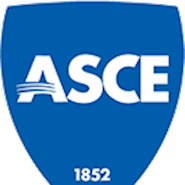William “Bill” Patrick Henry, a water resources engineer and 2005 ASCE president who conceived and helped develop a Society effort to reduce international corruption in civil engineering and construction, has died. He was 84.
In college, while feeling limited by what he learned in mathematics, he became fascinated by the construction of a generating station while working at a local electric utility. This prompted a switch to civil engineering. But as he later said, “It was not until I came to the courses in hydraulics, hydrology, water quality, and the social and economic aspects of water resources that water surpassed construction as my main interest.”
Henry, P.E., D.WRE(Ret.), F.ASCE, Pres.05.ASCE, worked for firms large and small, advancing steadily, from technical specialist to project manager, branch office manager, marketing manager, corporate planner, and corporate officer. He also served as president and chairman of Aqua Resources Inc., a consulting engineering firm he co-founded. More than half his career was spent with Bechtel, Parsons Brinckerhoff, and CH2M Hill.
Henry was actively involved in ASCE for decades and was a life member. He was president of the San Francisco Section, chaired and served on many ASCE committees, and in fall 2003, began his three-year tenure as national president-elect, president, and past president. "It's great to be a civil engineer!" he was known to say.
His special focus during those years was working to reduce corruption in the engineering/construction industry worldwide. He was on the team that created the Global Anti-Corruption Education and Training Initiative (ACET), which produced a movie called Ethicana. For years after his presidential term ended, he continued this effort at conferences, in papers, and in training he helped develop for engineers.
Henry also served as vice chair of ASCE’s Committee on Diversity and Women in Civil Engineering and as a member on the Congressional Fellow Selection Committee and National Water Policy Committee. He received the William H. Wisely Award, the H.J. Brunier Award from the San Francisco Section, and the G. Brooks Earnest Lecture Award from the Cleveland Section, among others. In 2005 he became one of the first diplomates of the American Academy of Water Resources Engineers.
His work took him from Seattle, Denver, and California’s Bay Area to Fairfax County, Virginia, where he began his favorite engineering effort, developing the master plan for flood control and drainage as the county was transitioning from rural to suburban. His projects took him to several other countries as well, one of them being South Korea, where he was commissioned as a second lieutenant in the U.S. Army Corps of Engineers and where he married his wife, Joan.
Very much a family man, he and Joan were married almost 59 years. They backpacked, rode horseback, and traveled to 43 countries; and on returning home, they often made meals they had tried during their travels to make their adventures last longer. Henry was able to play softball through this past August and hiked as recently as September.



